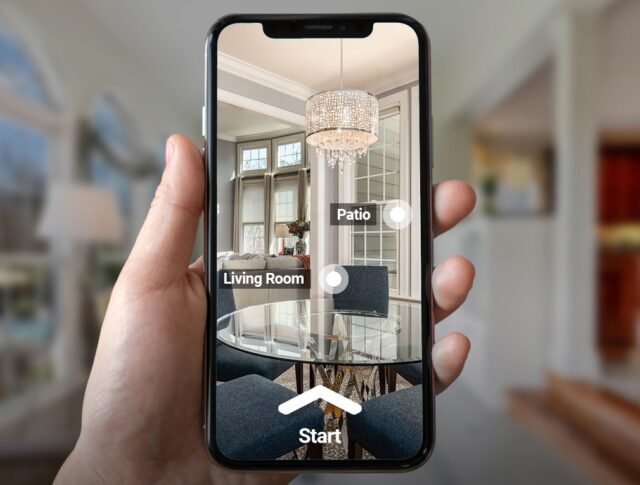
The real estate industry is undergoing a remarkable transition due to technological advancements. The once-known industry for its traditional and cumbersome processes is now simplified, transparent, and more secure. The tech-driven innovations are reshaping how properties are bought, sold, rented, and managed, from artificial intelligence (AI) to blockchain and virtual reality (VR). These technological advancements have streamlined operations, enhanced user experiences, and created new opportunities for buyers and sellers. Herein, we’ll explore how technology is revolutionizing the real estate industry and what the future may hold.
The blockchain
Technology has streamlined the complex process of property transactions. Blockchain, a distributed ledger, is making waves in real estate as it offers a more secure, transparent, immutability, and efficient way to manage property records and streamline transactions. This can significantly reduce fraud and the risk of disputes, as only involved parties can access data, ensuring a smoother experience for all parties involved.
Blockchain powers smart contracts, allowing for automated payments and the seamless execution of contractual agreements. It reduces the need for intermediaries, such as real estate agents and escrow companies, resulting in cost and time savings for buyers and sellers. Blockchain promotes healthy business transactions, fostering trust between buyer and seller.
The data analytics and market insights
Data is the driving force of the real estate industry, and technology is helping professionals harness its power. Advanced analytics tools can filter through vast datasets to offer valuable market insights. Real estate professionals can now make data-driven decisions, accurately predicting property values, rental yields, and potential growth areas.
Investors benefit from data-driven analytics as they can identify lucrative investment opportunities and minimize risks. This newfound precision empowers interested investors to make informed decisions in a changing market. Besides, as an investor, you can monitor your competitors’ performance, which can help set a clear path to standing out.
The virtual tours and augmented reality

Apparently, homebuyers/renters can virtually take property detours while on their couches. With VR and AR, buyers can interact with a property as if they are there physically. These technologies have opened a whole new world of property possibilities to buyers and sellers. Potential buyers can immerse themselves in a property, exploring every nook and cranny in high-definition 3D. They can arrange or rearrange furniture and home accessories or even repaint walls to help with decision-making.
Sellers benefit from these technologies, as they can showcase their properties to a wider audience, eliminating the need for in-person showings for every interested party. This saves time and money and reduces carbon footprints since buyers, sellers, or agents don’t have to drive from one location to another.
The property search
Gone are the days of flipping through physical listings or driving around neighborhoods searching for “For Sale” signs. Prospective buyers and tenants can now access a pool of insightful information with a few clicks on their smartphones or computers. Today, you can hit the search engine and access more options. This is not to mention social media platforms, which have become gateways to virtually everything.
Online real estate platforms and mobile apps are revolutionizing property searches. You can visit this link and easily find the perfect home or investment opportunity in the comfort of your home within a few clicks. Solutions like Hauzisha offer access to extensive listings and innovative filters to help you quickly find the property aligned with your needs and preferences.
Online listings offer access to a wide range of properties, which is more productive with modern technology. Technology like artificial intelligence and machine learning have amplified the search experience. They provide personalized property recommendations based on a user’s preferences, search history, and behavior. Predictive analytics can even forecast market trends, helping buyers easily find great properties and make more informed decisions.
Crowdfunding and real estate investment platforms

Technology has completely transformed real estate investment. Crowdfunding brings in people who share common real estate investment goals. Crowdfunding helps small investors pull in their resources to manage to acquire an investment that one or two investors could not afford. This resulted in the emergence of crowdfunding platforms. Or they can search for a sponsor who finances and manages their project.
The platforms allow enthusiastic individuals to invest in properties with relatively small amounts of capital. This opens up opportunities for a broader range of investors to participate in real estate and diversify their portfolios. These platforms often provide access to detailed property data and analytics, helping investors make informed decisions.
Property management and maintenance
How property owners and managers manage and maintain their investments has been revolutionized. Today, with smart home automation devices and the Internet of Things, managerial parts can remotely monitor properties using their smartphones. These technologies can inform the homeowner/manager when maintenance is needed and schedule. This reduces maintenance costs and improves efficiency.
Property managers can easily control lighting, heating, and security systems from their smartphones. While sensors can detect and report maintenance issues before they become costly problems.
Construction Tech

The construction of properties has not been left untouched. Construction tech innovations, such as Building Information Modeling (BIM) and 3D printing, are making construction faster, more efficient, and cost-effective. BIM allows for detailed digital representations of building projects, reducing errors and optimizing resource allocation. 3D printing creates building components, reducing waste and construction time.
Communication
Communication is essential in any business transaction. Technology has brought about many communication tools, making it easier for agents, buyers, and sellers to stay connected. Video conferencing, instant messaging, and collaboration apps have become indispensable for remote negotiations and consultations.
The real estate industry’s transformation through technology is nothing short of revolutionary. These innovations reshape how properties are discovered, bought, and managed while enhancing efficiency, transparency, and sustainability. As such, real estate professionals must embrace these technological changes to stay competitive and thrive in the ever-changing real estate landscape.
Besides, no business can thrive if it remains in a stagnant motion. So, as technology advances, the real estate sector will evolve further, creating exciting opportunities for professionals and consumers. The industry must adapt to the new technological trends to ensure it serves its consumers fully.











